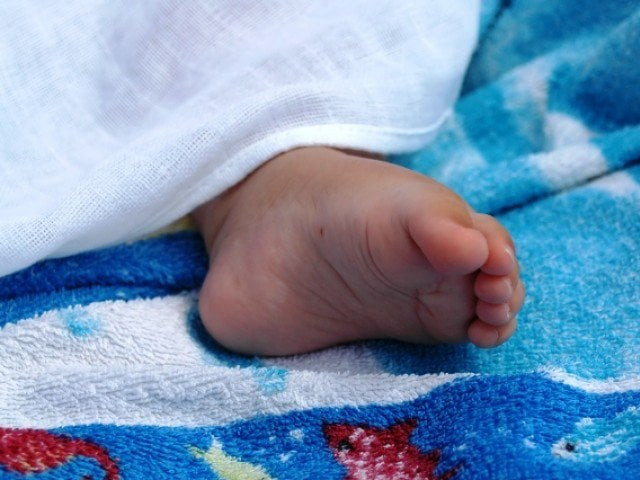Sindh Health Care Commission submits its inquiry report on Nashwa’s case
Report holds lower staff of DUSH accountable, remains to be seen if action is taken against higher authorities as well

Report holds lower staff of DUSH accountable, remains to be seen if action is taken against higher authorities as well. PHOTO: FILE
The report, which was shared on Tuesday with Nashwa’s father, Qaiser Ali, on whose complaint the inquiry was initiated, also ‘recommends’ other administrative and clinical measures to be implemented at the hospital for “quality improvement”.
Findings
According to the report, Nashwa was brought to DUSH with a minor complaint of diarrhoea and vomiting for which she was given a course of treatment. The report states that Sobia, a midwife, who was part of the floor staff, was assigned medication duty and gave Nursing Assistant Moiz two injections for administration.
One of these was the Potassium Chloride (KCL) injection which Moiz administered to Nashwa directly and intravenously instead of adding it to a drip and allowing it be administered over a period of time. This caused Nashwa’s condition to deteriorate - she went into cardiac arrest. She was given Cardio Pulmonary Resuscitation (CPR) for 45 minutes which caused damage to her brain and other tissues since blood circulation was reduced during this time. The report concluded that the injection proved lethal and Nashwa suffered from brain damage due to prolonged cardiac arrest.
It was also found that DUSH has a nursing staff of 165, of whom only 70 are registered nurses.
Based on the above evidence, the report concluded, “this is an act of grave negligence by the duty nursing staff. Therefore, according to Section 28(1) of the SHCC Act of 2013, DUSH is liable and recommended to pay a fine of Rs500,000”. Section 28(1) empowers SHCC to impose a fine which may extend to Rs500,000 keeping in view the seriousness of the offence.
Recommendations
The report has listed a series of administrative and clinical recommendations for DUSH to implement.
The decisions to be implemented with immediate effect include the negligence of Sobia and Moiz to be reported to their regulatory council for disciplinary action, DUSH should immediately suspend and terminate its untrained nursing staff - 95 out of a total of 165, the in-charge of recruitment at the hospital should be terminated, the hospital is recommended to pay the fine, and should constitute a ‘code blue team’ as per international recommendations to provide timely critical care to serious patients.
Medical negligence: Nine-month-old Nishwa passes away
The hospital is to report back to SHCC of its compliance of these decisions.
Other administrative suggestions include a proper Human Resources (HR) department and HR policy to be in place, the hospital should recruit qualified and trained staff, among others.
Who is to blame?
While the two staff members, Sobia and Moiz, have been held responsible for their negligence, the organisation which hired them is also liable. The hospital which has 95 unregistered nursing staff in its service is accountable for their negligence. The initial report submitted by the two-member committee constituted by the Sindh chief minister to investigate Nashwa’s case stressed on the absence of medical facilities in the hospital as well as highlighting the issue of untrained staff. It remains to be ascertained whether unregistered and untrained staff infiltrated only the nursing department at DUSH or if the problem prevails in other departments as well.
The question then arises on the effectiveness of SHCC itself which let such an institution retain its licence in the first place.
The SHCC was responsible for ensuring quality services at the hospitals registered with it. It is responsible for taking action against those involved in negligence but it only visited Darul Sehat Hospital when it was forced to do so by the unfortunate circumstances of Nashwa’s case.
Published in The Express Tribune, April 24th, 2019.


















COMMENTS
Comments are moderated and generally will be posted if they are on-topic and not abusive.
For more information, please see our Comments FAQ